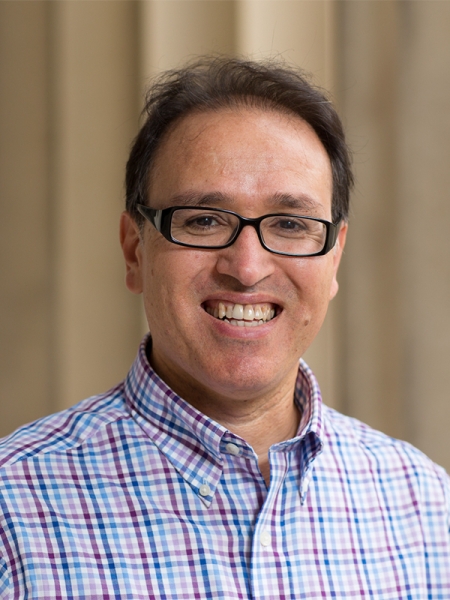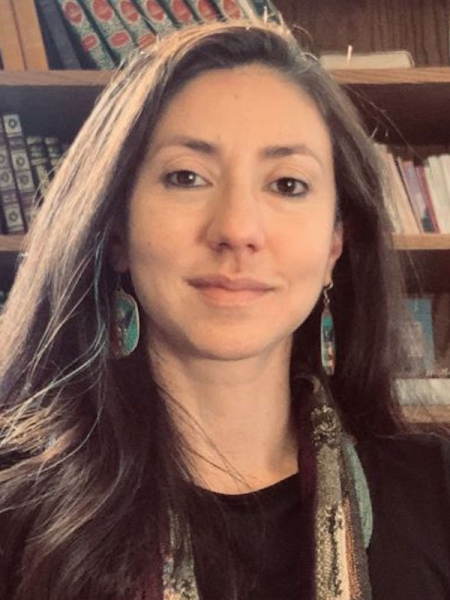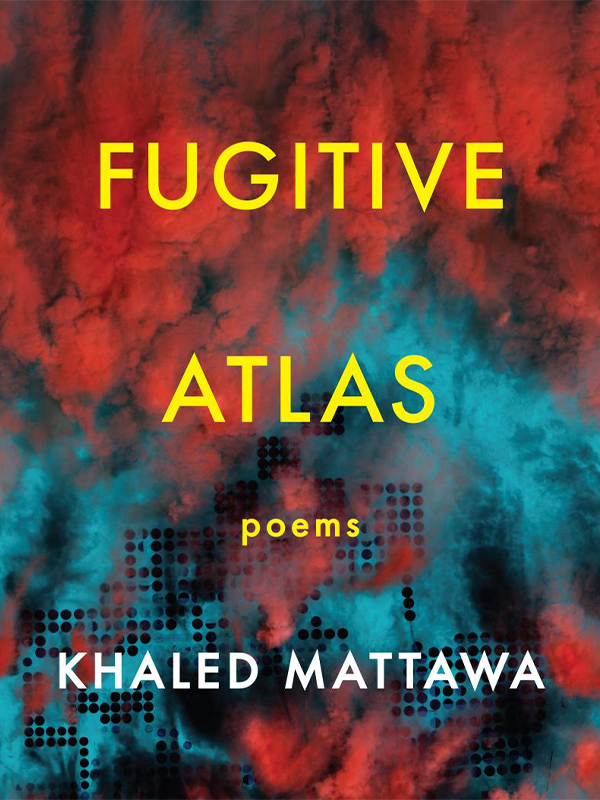Presented in collaboration with Kelly Writers House
Khaled Mattawa’s latest collection Fugitive Atlas is a lyrical examination of global injustice and upheaval, specifically the ongoing migrant and refugee crisis in Europe. Following a reading, Mattawa talks with Wolf Humanities Center’s 2023–24 Forum on Revolution topic director Huda Fakhreddine about the time he spent aboard a migrant ship between Italy and Libya and his deep commitment to literary activism.
A book signing and reception will follow.
 Born and raised in Benghazi, Libya, poet Khaled Mattawa relocated to the United States as a teenager in 1979. Mattawa’s poetry frequently explores the intersection of culture, narrative, and memory. In a 2007 Blackbird interview, addressing the connection between his emigration from Libya to the United States and his poetry, Mattawa observed, “I think memory was very important to my work as a structure, that the tone of remembrance, or the position of remembering, is very important, was a way of speaking when I was in between deciding to stay and not stay, and I had decided to stay.”
Born and raised in Benghazi, Libya, poet Khaled Mattawa relocated to the United States as a teenager in 1979. Mattawa’s poetry frequently explores the intersection of culture, narrative, and memory. In a 2007 Blackbird interview, addressing the connection between his emigration from Libya to the United States and his poetry, Mattawa observed, “I think memory was very important to my work as a structure, that the tone of remembrance, or the position of remembering, is very important, was a way of speaking when I was in between deciding to stay and not stay, and I had decided to stay.”
Most recently, Mattawa is the author of the collection Fugitive Atlas (2020). With extraordinary formal virtuosity and global scope, these poems turn not to lament for those regions charted as theaters of exploitation and environmental malpractice but to a poignant amplification of the lives, dreams, and families that exist within them. In these exquisite pages, Mattawa asks how we are expected to endure our times, how we inherit the journeys of our ancestors, and how we let loose those we love into an unpredictable world.
Mattawa has published numerous other collections of poetry, including: Ismailia Eclipse (1995), Zodiac of Echoes (2003), Amorisco (2008), Tocqueville (2010), and Mare Nostrum (2019). He has translated volumes of contemporary Arabic poetry, including Adonis’s Concerto al-Quds (The Margellos World Republic of Letters) (2017) and Shepherd of Solitude: Selected Poems of Amjad Nasser (2009).
He coedited the anthologies Dinarzad’s Children: An Anthology of Arab American Fiction (2004) and Post Gibran: Anthology of New Arab American Writing (1999). Mattawa’s own work has been widely anthologized as well. He is the recipient of several Pushcart Prizes and the PEN Award for Literary Translation, in addition to a translation grant from the National Endowment for the Arts, a Guggenheim Foundation fellowship, the Alfred Hodder Fellowship at Princeton University, and a MacArthur fellowship.
He earned a BA in political science and economics from the University of Tennessee, an MA and an MFA from Indiana University, and a PhD from Duke University. The editor of Michigan Quarterly Review, he has taught at Indiana University; California State University, Northridge; and, currently, the University of Michigan.
 Huda J. Fakhreddine is associate professor of Arabic Literature at the University of Pennsylvania. She is the author of Metapoesis in the Arabic Tradition (Brill, 2015) and The Arabic Prose Poem: Poetic Theory and Practice (Edinburgh University Press, 2021). She is the co-translator of Lighthouse for the Drowning (BOA editions, 2017), The Sky That Denied Me (University of Texas Press, 2020), and Come, Take a Gentle Stab: Selections from Salim Barakat (forthcoming from Seagull Books, 2021). Her book of creative non-fiction titled Zaman s̩aghīr taḥt shams thāniya (A Small Time under a Different Sun) was published by Dar al-Nahda, Beirut in 2019. She is the co-editor of Middle Eastern Literatures, an editor of the Library of Arabic Literature, and the topic director of the Wolf Center's 2023-2024 forum on "Revolution."
Huda J. Fakhreddine is associate professor of Arabic Literature at the University of Pennsylvania. She is the author of Metapoesis in the Arabic Tradition (Brill, 2015) and The Arabic Prose Poem: Poetic Theory and Practice (Edinburgh University Press, 2021). She is the co-translator of Lighthouse for the Drowning (BOA editions, 2017), The Sky That Denied Me (University of Texas Press, 2020), and Come, Take a Gentle Stab: Selections from Salim Barakat (forthcoming from Seagull Books, 2021). Her book of creative non-fiction titled Zaman s̩aghīr taḥt shams thāniya (A Small Time under a Different Sun) was published by Dar al-Nahda, Beirut in 2019. She is the co-editor of Middle Eastern Literatures, an editor of the Library of Arabic Literature, and the topic director of the Wolf Center's 2023-2024 forum on "Revolution."



